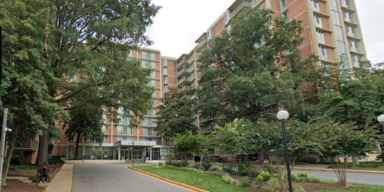
After several rounds of emergency legislation, the D.C. Council already has passed an impressive list of important measures to try to mitigate the harm to District residents’ safety, wellbeing, and financial security during this unprecedented time. But a major gap in the District’s emergency response so far is the failure to stop foreclosures. The Council must fill this gap by enacting the Foreclosure Moratorium Emergency Amendment Act of 2020 at its legislative session tomorrow.
The foreclosure moratorium bill, introduced by Councilmember Nadeau and the members of the Committee on Housing and Neighborhood Revitalization, would enact a time-limited prohibition on foreclosures while the District's public health emergency is in effect and for 60 days thereafter. The Office of the Attorney General has weighed in and noted it is fully supportive.
As highlighted in a Letter to the Editor written by Legal Aid’s Damon King and recently published by the Washington Post, the District lags behind several other states – such as Maryland, South Carolina, and Indiana – that have already have taken specific action to halt foreclosures as part of their emergency response.
Preventing the permanent loss of title and equity during this limited period of time is critical to protecting District homeowners, whether they are in danger of foreclosure due to inability to pay the mortgage, or because they are behind on condo fees. While the Council has already enacted some limited mortgage relief for homeowners who are struggling due to the pandemic, that relief does not reach everyone and still leaves many homeowners extremely vulnerable. A foreclosure moratorium would provide clear, broad, and automatic protection to homeowners for a brief cushion of time after the stay-at-home order ends, allowing them to take action to avoid the worst outcomes, whether that may be by working out a payment plan to keep their home or recouping their equity through a voluntary sale.
For Legal Aid clients like Ms. L, a time-limited foreclosure moratorium would be life-changing. Ms. L, a resident of Ward 7, is a low-income single mother living with her daughter in the condo that she has owned since 2010. She began to fall behind on her condo fees and mortgage in 2017 because of job difficulties. She was actively interviewing and expecting to return to the work force this winter. Unfortunately, she was then diagnosed with breast cancer and has been receiving chemotherapy ever since.
Ever since a lien for unpaid condo dues was recorded earlier this year, Ms. L has been diligently attempting to contact her condo association's lawyer, but is never able to reach anyone other than the paralegal. A non-judicial foreclosure of her condo was scheduled to go forward last month, in the midst of the pandemic. No court action was ever filed. After she retained counsel, her lawyer contacted the mortgage company several times to try to coordinate a resolution, but to no avail. Ms. L also tried, but nothing ever came of the requests. With the threat of the auction still pending, Ms. L eventually risked her health by traveling to federal court to declare bankruptcy during the COVID-19 shutdown in a desperate effort to postpone the sale. The sale did not go forward, but the condo debt remains outstanding. At a time when she should be focused on her health and staying safe at home with her child, she remains under tremendous stress that a new sale could be scheduled at any time.
There is hope for Ms. L. Because of the federal CARES Act, she received a mortgage forbearance, building in critical breathing room to delay the mortgage payments while she waits to begin receiving disability benefits this summer. With that new income, she hopes to qualify for a loan modification that will bring her current on the mortgage, and to enter into a payment plan with her condo association. If passed, the Foreclosure Moratorium Amendment Act would press pause on foreclosures at the exact critical time when she needs it most and would have a life-changing impact on her and her daughter.
We thank Councilmember Nadeau and the members of the Committee on Housing and Neighborhood Revitalization for introducing this bill. And we urge the Council to seize this moment to build a more equitable DC by enacting the Foreclosure Moratorium Amendment Act of 2020 – for Ms. L, and for the many other District homeowners who so desperately need this relief right now.




